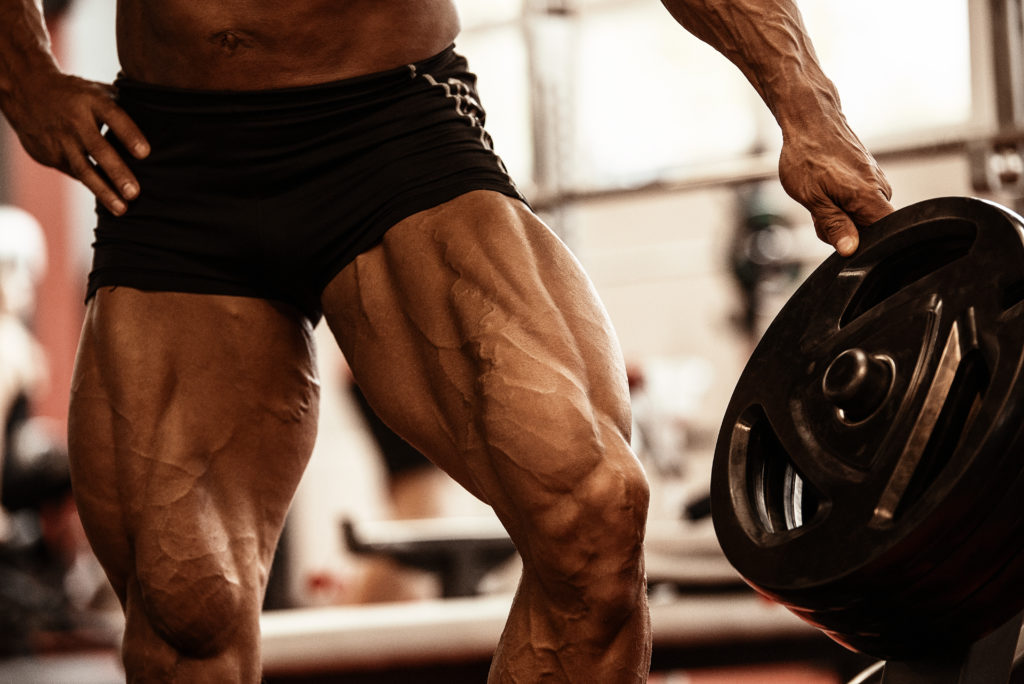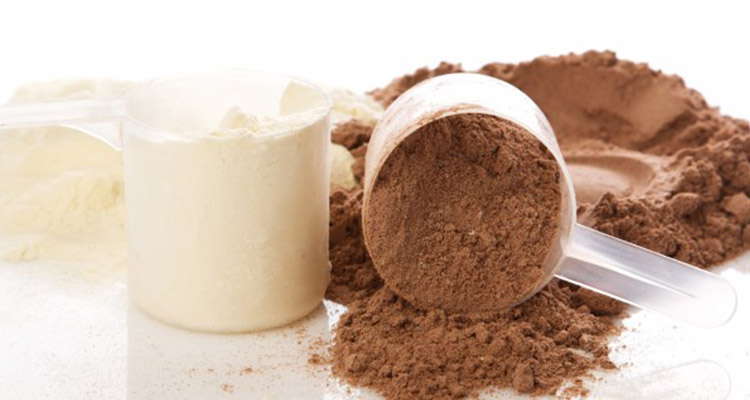Table of Contents
Struggling to lose weight or build muscle as you envisioned? Ever wondered if hormones might be the culprit? You might have come across the notion that insufficient levels of testosterone, estrogen, or progesterone could complicate the journey to your dream body. Sexual hormones are indeed pivotal players in many crucial processes in our bodies. So, what does science say about them, why does our body need them, and what role do they play in weight loss and muscle growth?
What are hormones?
Hormones are substances that play the role of messengers in the body, transmitting signals between organs. They ensure the coordination of different parts of the body and its smooth functioning. They are produced in several places in the body, in the so-called endocrine glands. These include the hypothalamus in the brain, the pancreas, adrenal glands, thyroid gland, or sex organs.
For example, the hormone adrenaline is released from the adrenal glands in response to acute stressful situations. When released into the blood, it instructs the heart to beat faster and pump more oxygen to the brain and muscles. This allows your body to react more quickly to dangerous situations. You can think more effectively and, if necessary, escape or defend yourself. In addition to adrenaline, our bodies have many other hormones that are essential for the proper functioning of the organism. [2]
What are sex hormones?
Sex hormones are responsible for the development of male and female reproductive organs, as well as characteristics typical of female and male bodies.
- Female sex hormones are mainly produced in the ovaries and control processes such as the menstrual cycle or pregnancy.
- Male sex hormones, on the other hand, are produced mainly in the testicles and are responsible, for example, for the production of sperm.
The main male sex hormone is testosterone, while in women, estrogen and progesterone play the most important role. It is interesting to note that women also have testosterone and men have estrogen, but in much lower concentrations. These sex hormones are significant in reproductive functions but also affect cardiovascular health, immunity, or bones. Similarly, their influence is is also evident in regards to hot topics, such as muscle growth and weight loss. [2]

What impact does progesterone have on muscle growth?
The role of progesterone in muscle growth is not as well-researched as that of testosterone or estrogen. However, current research suggests that it likely has an anabolic effect, which means that it can contribute to muscle growth or regeneration. [8]
What role does progesterone play in weight loss?
Similarly to muscle building, the role of progesterone in weight loss or weight maintenance is not well studied. However, we can say that overall hormonal balance is important for the body and its metabolism to function properly. An optimal level of progesterone is part of this balance. We can therefore assume that in order for the body to maintain normal weight or successfully shed kilograms, it needs to have the right level of this hormone. [14]
How do I find out if my hormone levels are normal?
The foundation of good health is hormonal balance. For both men and women, only then will the body function properly. However, how can you find out if everything is okay with your hormones? In the first place, potential symptoms can give you some indication.
For example, if a woman struggles with irregular menstruation, it is likely that estrogen or progesterone levels are not within norms. Similarly, if a man has problems with libido, experiences fatigue or mood swings, the cause may be low testosterone levels. For more serious symptoms, it’s always advisable to visit a doctor who can examine levels of your sex hormones.
What to do when hormone levels are not within norms?
If you suspect a hormonal imbalance, it is advisable to focus on an overall lifestyle change.
- Treat yourself to a high-quality and varied diet that provides you with enough energy and all essential nutrients.
- Don’t forget regular exercise. Activities such as strength training or high-intensity interval training (HIIT) are especially beneficial.
- Work on managing stress as much as possible. Long-term stress is known for its negative effects on hormonal balance.
- Ensure an adequate and quality sleep.
- You can take supplements that aim to support women’s or men’s health and hormone production.
If the hormone deficiency is too significant or accompanied by health complications, leave the solution to doctors. They can put you on hormone replacement therapy to help you regain control of your hormone levels.
What should you remember?
Sex hormones are important substances needed for the proper functioning of our bodies. Testosterone in men is essential, for example, for sperm production, while women need estrogen and progesterone for a healthy menstrual cycle or pregnancy. In addition, they also affect metabolism and can have a significant impact on your body composition. Normal levels of testosterone and estrogen have been shown to be particularly important when you want to successfully build muscle or lose weight.
Everyone should strive to maintain healthy levels of their sex hormones. A quality and varied diet with enough calories and nutrients or supplements directly targeting the support of these hormones can help you achieve this.
Did you enjoy today’s article and learn something new? If so, share it with your friends and family!
[1] GOLAN, R. et al. Age-Related Testosterone Decline is due to Waning of Both Testicular and Hypothalamic-Pituitary Function. – https://www.ncbi.nlm.nih.gov/pmc/articles/PMC4816459/
[2] HILLER-STURMHÖFEL, S. – BARTKE, A. The Endocrine System. – https://www.ncbi.nlm.nih.gov/pmc/articles/PMC6761896/
[3] HUHTANIEMI, I.T. Andropause – lessons from the European Male Ageing Study. – https://www.sciencedirect.com/science/article/pii/S0003426614000249
[4] CHIDI-OGBOLU, N. – BAAR, K. Effect of Estrogen on Musculoskeletal Performance and Injury Risk. – https://www.ncbi.nlm.nih.gov/pmc/articles/PMC6341375/
[5] MULLIGAN, T. et al. Prevalence of hypogonadism in males aged at least 45 years: the HIM study. – https://www.ncbi.nlm.nih.gov/pmc/articles/PMC1569444/
[6] MURRAY, M. Low Testosterone Research Analysis. – https://examine.com/conditions/low-testosterone/
[7] SINGH, P. Andropause: Current concepts. – https://www.ncbi.nlm.nih.gov/pmc/articles/PMC4046605/
[8] SMITH, G.I. et al. Testosterone and Progesterone, But Not Estradiol, Stimulate Muscle Protein Synthesis in Postmenopausal Women. – https://www.ncbi.nlm.nih.gov/pmc/articles/PMC3879672/
[9] TRAISH, A.M. Testosterone and weight loss: the evidence. – https://www.ncbi.nlm.nih.gov/pmc/articles/PMC4154787/
[10] URBAN, R.J. Growth hormone and testosterone: anabolic effects on muscle. – https://pubmed.ncbi.nlm.nih.gov/21778755/
[11] VIGIL, P. et al. The importance of estradiol for body weight regulation in women. – https://www.ncbi.nlm.nih.gov/pmc/articles/PMC9677105/
[12] YOH, K. et al. Roles of Estrogen, Estrogen Receptors, and Estrogen-Related Receptors in Skeletal Muscle: Regulation of Mitochondrial Function. – https://www.mdpi.com/1422-0067/24/3/1853
[13] Estrogen – StatPearls – NCBI Bookshelf. – https://www.ncbi.nlm.nih.gov/books/NBK538260
[14] Hormonal Weight Gain – Endocrinology Consultants, P.C. – https://www.endocrinewellness.com/hormonal-weight-gain/
[15] Menopause. – https://www.who.int/news-room/fact-sheets/detail/menopause
[16] Physiology, Testosterone – StatPearls – NCBI Bookshelf. – https://www.ncbi.nlm.nih.gov/books/NBK526128/
[17] The Female Athlete Triad – PMC. – https://www.ncbi.nlm.nih.gov/pmc/articles/PMC3435916/






Leave a Reply
You must be logged in to post a comment.